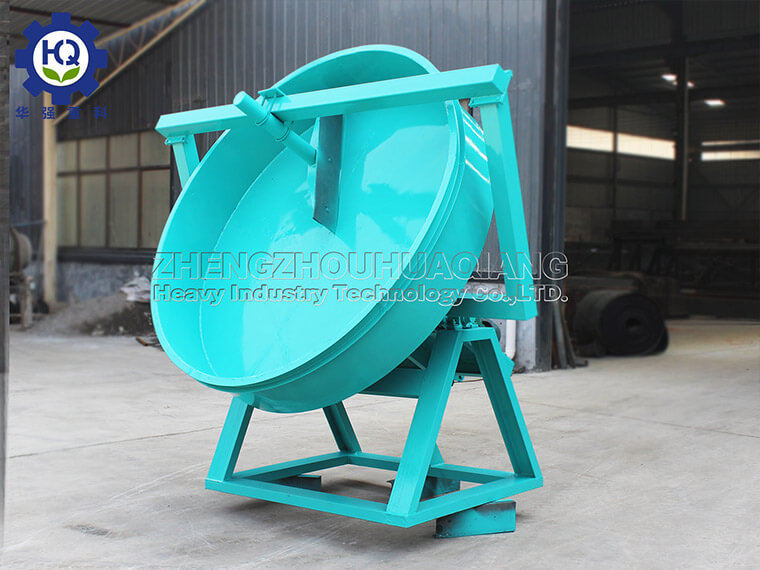How is the disc granulator used in fertilizer production lines for granulation
Common organic fertilizer granulators include: double roller granulator, stock granulator, disc granulator, new organic fertilizer granulator, etc. The disc granulator is widely used and can be used for npk fertilizer production line , organic fertilizer production, bio-organic fertilizer production line, etc. Today, let’s understand the working principle of the disc granulator.
The organic fertilizer disc granulator machine is a new type of inclined granulation equipment. The granulation rate of this disc granulator machine is about 90%. The reducer and motor in the machine are transmitted by a flexible belt, which makes the disc granulator start smoothly, slows down the impact force, and improves the service life of our equipment. The bottom of the granulator disc is reinforced with a variety of radiant steel plates, which are firm and durable and not easy to deform. This thickened and heavier base design is relatively firm, does not require anchor bolts to fix, and is relatively stable. When the disc granulator is running, the granulation is uniform and the spheroidization rate is high. Not only does it run smoothly, but the device is sturdy and durable.
How does the organic fertilizer disc granulator machine work? First, the main motor drives the pulley and belt. The pinion gear is driven by the reducer, and the pinion gear is engaged with the large gear fixed on the ground. The large gear is installed on the main shaft on the frame adjustment disc through a special and reasonable design to support the work of the entire granulation disc. After the material enters the granulation disc, the disc granulation equipment continuously rotates the spray device to make the material evenly bonded to form round spherical particles. The upper part of the disc granulation equipment is designed with an automatic cleaning device, which prevents the material from sticking to the wall and improves the service life of the machine. The motor continuously rotates and the material enters continuously, which can not only realize mass production, but also easily meet the needs of continuous work.

.jpg)
